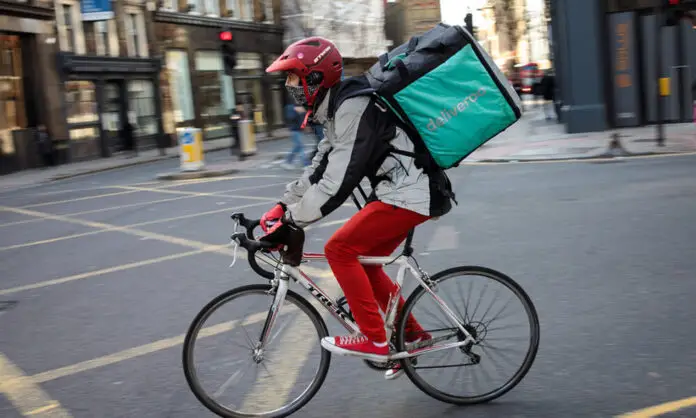With the number of people on zero-hour contracts at an all time high of 1 million, a leading charity has warned of an unfolding workers’ rights crisis.
New research from Citizens Advice found agency workers and those on zero-hours contracts, including “gig economy” workers, were more likely to have seen their employment rights violated, faced job losses and lost income during the pandemic compared to the rest of the working population.
More than half (52%) of insecure workers classed themselves as key workers.
Compared to the rest of the working population insecure workers were on average four times more likely to have faced losing their job
Three times more likely to have been made to work while ill and to have not been paid wages they were owed and one and a half times more likely to have lost income, with those who had lost income averaging a loss of £1,000 a month since March
The charity’s advisers have seen worrying examples of potential employment rights violations. These include an agency worker who was told to ‘self isolate’ and sent home without pay from her factory job after she told management staff she was pregnant, and an agency worker who was denied sick pay they were entitled to after testing positive for Covid.
Citizens Advice warns many insecure workers are struggling to understand their rights or defend them due to a complex and patchwork system for employment enforcement.
“I spent a whole day advising care workers on zero-hours contracts”
Alex McColl is a frontline adviser at Citizens Advice Sheffield. He says: “What really came across in this pandemic is just how precarious you are as an insecure worker. When tough times came around they were often the ones who lost their jobs, were denied access to the furlough scheme or saw wages withheld.
“I spent a whole day advising care workers on zero-hours contracts. One had lost their job because they’d refused to go into the home of someone with Covid symptoms. Another raised concerns over health and safety at their workplace and was subsequently given duties cleaning a Covid ward. They felt it was punishment for speaking up.”
“We should be looking forward to Christmas but all I’m thinking about is paying the bills”
Sharon has worked as a childcare assistant in a creche for more than 9 years. She was employed on a zero-hours contract despite working a set pattern of 18 hours a week.
When lockdown hit, Sharon’s workplace was shut and she was furloughed. In September Sharon’s employer took her off furlough but did not give her any work. Her employer said that she was expected to be on standby. Sharon asked to receive redundancy pay instead and she was refused despite her local Citizens Advice establishing that she likely met the legal definition of an employee and would therefore be eligible.
Sharon says: “It’s been a real struggle financially. My partner is having to make up the shortfall in our income and that’s put a strain on everything. We should be looking forward to Christmas but all I’m thinking about is paying the bills.
“It’s also been a struggle mentally. I try to stay positive as I’m sure there are people worse off than me, but it feels really hopeless given there are no jobs around. I thought being with my employer for a long time would give me some security, so it’s gutting to be in this situation.”
Alistair Cromwell, Acting Chief Executive of Citizens Advice, said:
“Zero-hours and agency workers, including delivery drivers and carers, have often been at the frontline of this pandemic.
“Yet they’ve faced a triple hit of hardship: more likely to face losing their jobs, have their employment rights violated and experience stark drops in income.
“It’s not right that the rights insecure workers have aren’t always being upheld. The government must fast-track its plans to create a one-stop shop for employment rights to ensure that all workers, including people in the most precarious positions, are protected.”







